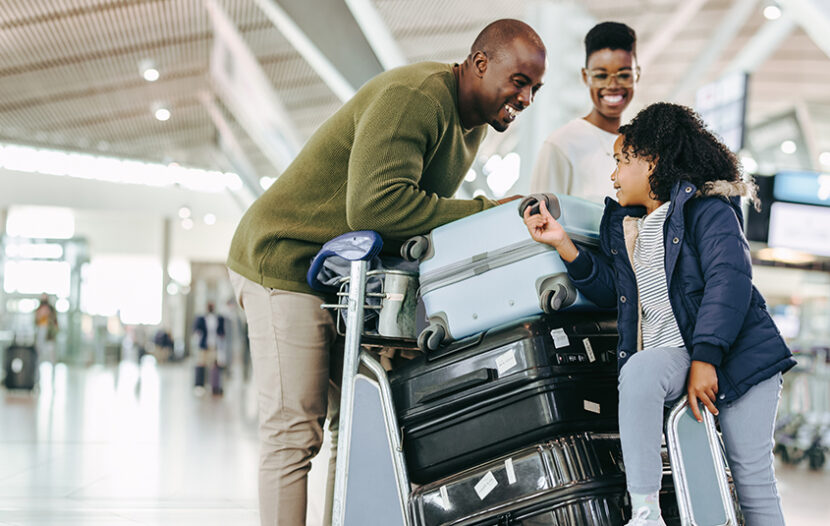BANGKOK — The International Air Transport Association (IATA) has released the findings of its 2024 Global Passenger Survey, highlighting that travellers are increasingly prioritizing convenience and speed in their travel experiences.
Many are eager to adopt biometric identification and complete certain travel processes before arriving at the airport, says Nick Careen, IATA’s Senior Vice President of Operations, Safety, and Security. North America passengers, for example, actively use biometric identification for airport processes and report high satisfaction with it. Nearly all are interested in providing data in advance for more ‘lighter’ security checks at the airport. They are also overwhelmingly – and more than any other region – prefer to pay for their flights with debit or credit cards and are the most frequent users of loyalty points for payment.
“Passengers want flexibility and transparency when planning and booking travel, plus speed and convenience at the airport. More are embracing biometrics, digital wallets, and off-airport processes to make it happen,” says Careen.
Planning, Booking, and Payment
The survey reveals several insights into traveller preferences during the planning and booking phases, including:
- Airport Selection: A significant 68% of respondents ranked proximity to the airport as their top priority, followed by minimizing total travel time (33%) and securing the best ticket price (25%).
- Booking Preferences: 71% of travellers book their trips online or via mobile apps, with 53% preferring to use the airline’s website or app, and only 16% opting for human interaction.
- Information Consolidation: 32% expressed a desire for all travel information to be consolidated in one place before their journey.
- Payment Methods: 79% prefer paying with a credit or debit card, an increase of 8 percentage points from 2023. Digital wallets and instant payment solutions are also gaining traction, with preferences for these options increasing by 2 and 3 percentage points, respectively.
“Convenience was the main reason passengers chose a particular payment method (70%), followed by benefits (39%) and security (33%),” Careen notes. IATA’s Modern Airline Retailing initiative aims to support airlines in delivering a more customer-centric approach, enhancing distribution and payment processes.
Airport Experience Expectations
The survey also shed light on how travellers view airport processes:
- Time Expectations: 70% want to reach their boarding gate within 30 minutes if travelling with only a carry-on, while 74% expect to do so within 45 minutes if checking a bag.
- Willingness to Share Data: 85% of respondents are open to sharing immigration data, such as passport and visa information, ahead of departure to expedite processes. Additionally, 89% showed interest in trusted traveller programs to speed up security screenings.
- Pre-Airport Processes: 45% believe immigration procedures should be completed before reaching the airport, and 70% would be more inclined to check in bags in advance.
- Biometric Adoption: 46% of travellers have experienced airport processes using biometric identification, with a high satisfaction rate of 84%. A substantial 75% prefer using biometrics over traditional passports and boarding passes.
IATA’s One ID initiative aims to meet these demands for faster, hassle-free airport experiences through secure biometric and digital identity solutions.
Technology Trends Among Younger Travellers
The survey indicated that younger travellers, particularly those under 25, are more proactive in utilizing technology to enhance their travel experiences but are also concerned about security:
- Digital Wallet Preferences: 51% would choose digital wallets for payments, significantly higher than the global average of 20%.
- Interest in Technology: 90% expressed interest in using smartphones with digital wallets and loyalty cards for booking, payment, and navigation at the airport, surpassing the global average of 77%.
- Biometric Preference: 48% of younger travellers prefer biometrics over traditional identification methods.
“The clear message from travellers is that they expect to board their planes faster with technology and smarter processes beginning well before they reach the airport,” adds Careen. “And the good news is that we are making this happen. Already travellers can arrive at the airport ready to fly with admissibility checks completed. And biometrics and digital identity can deliver a paperless experience once at the airport. That’s great for passengers.
“Importantly, the greater efficiency will help airport infrastructure to better cope with the growth in passenger numbers, helping to make the business case for adopting these new technologies and processes even more compelling.”

